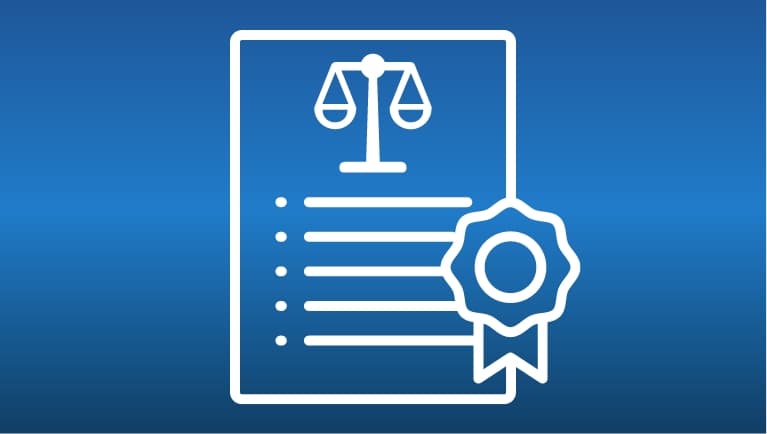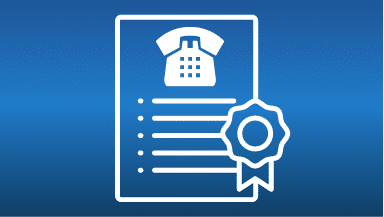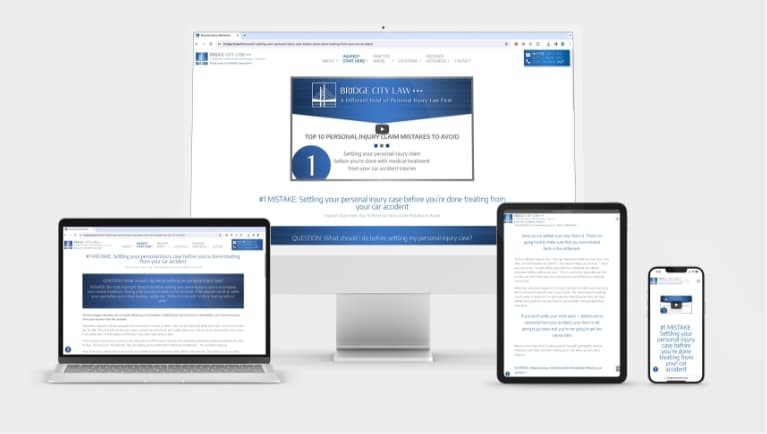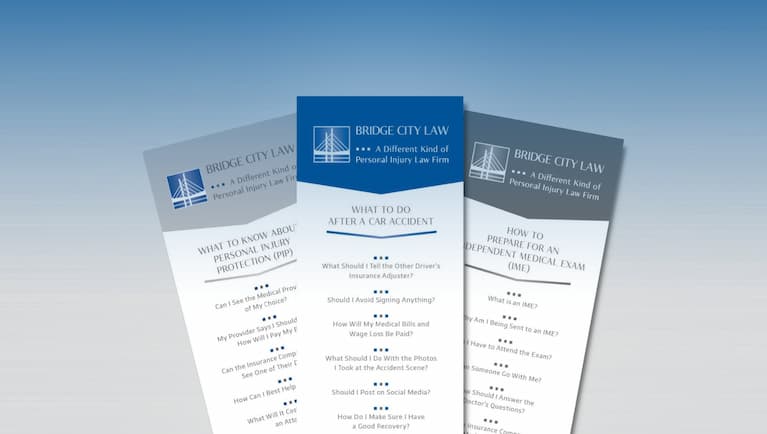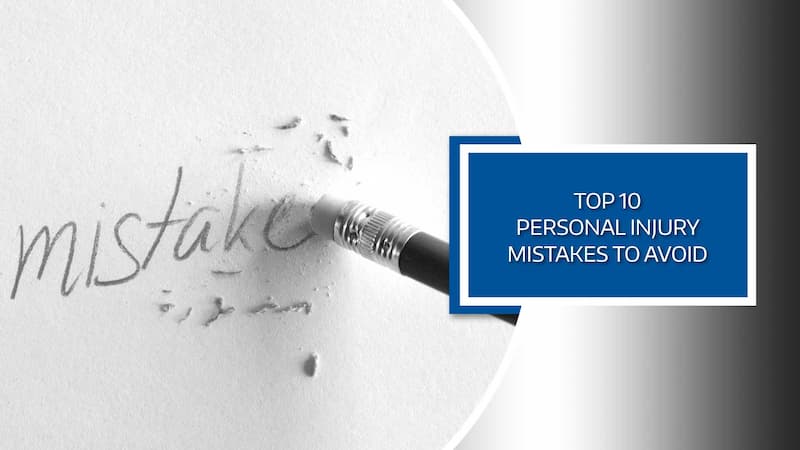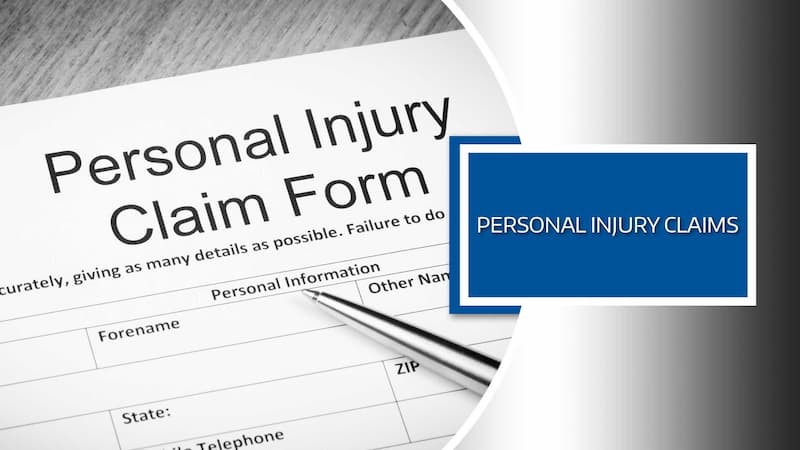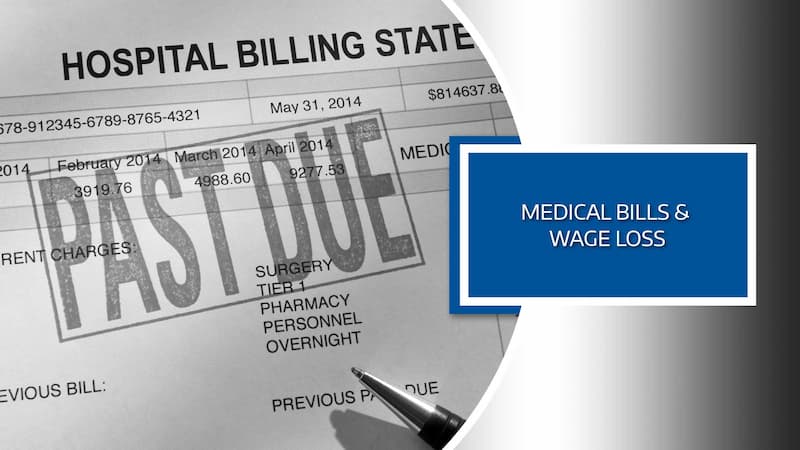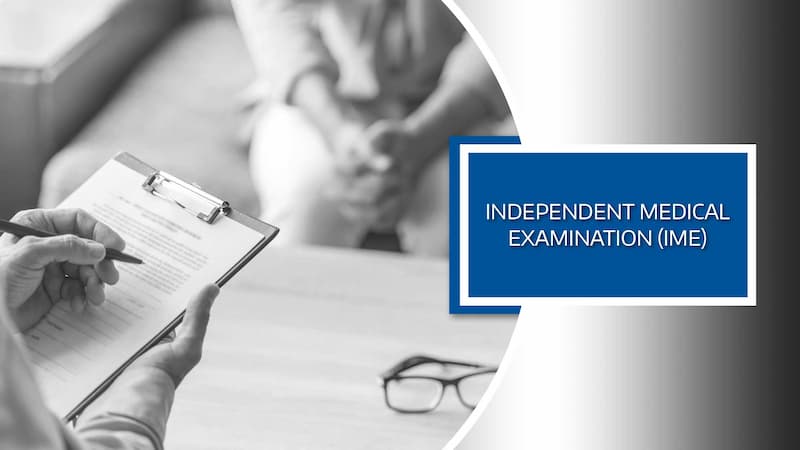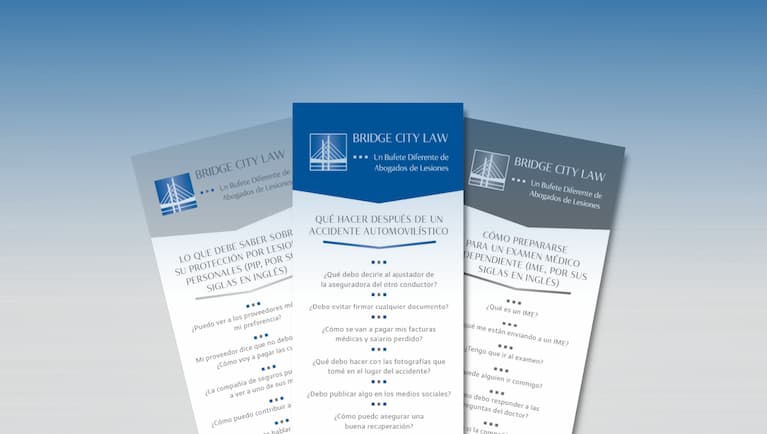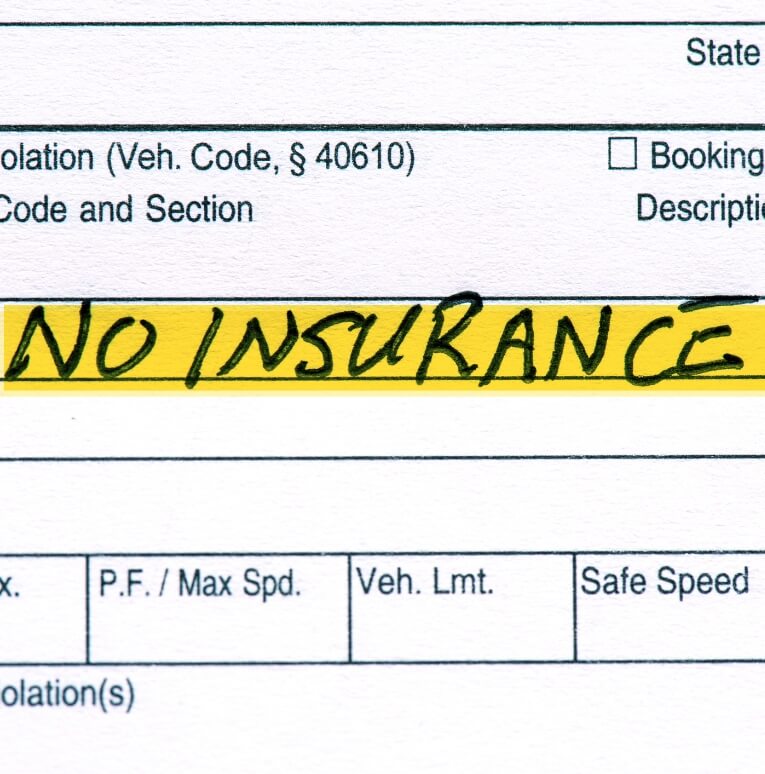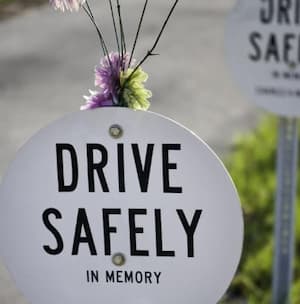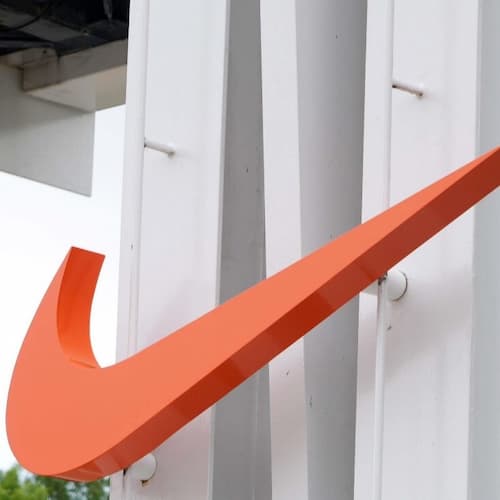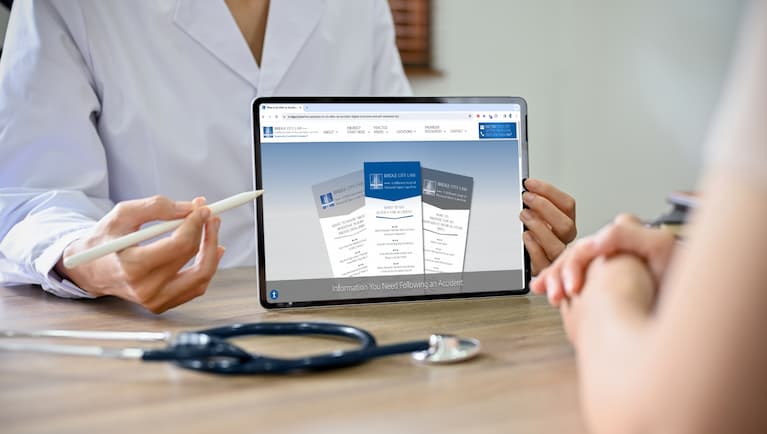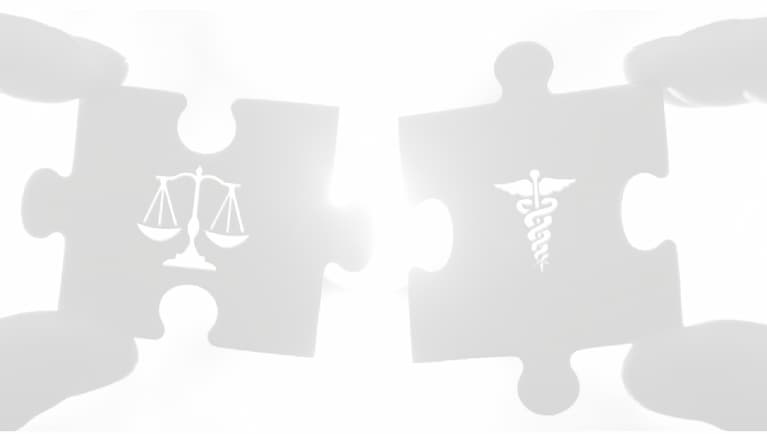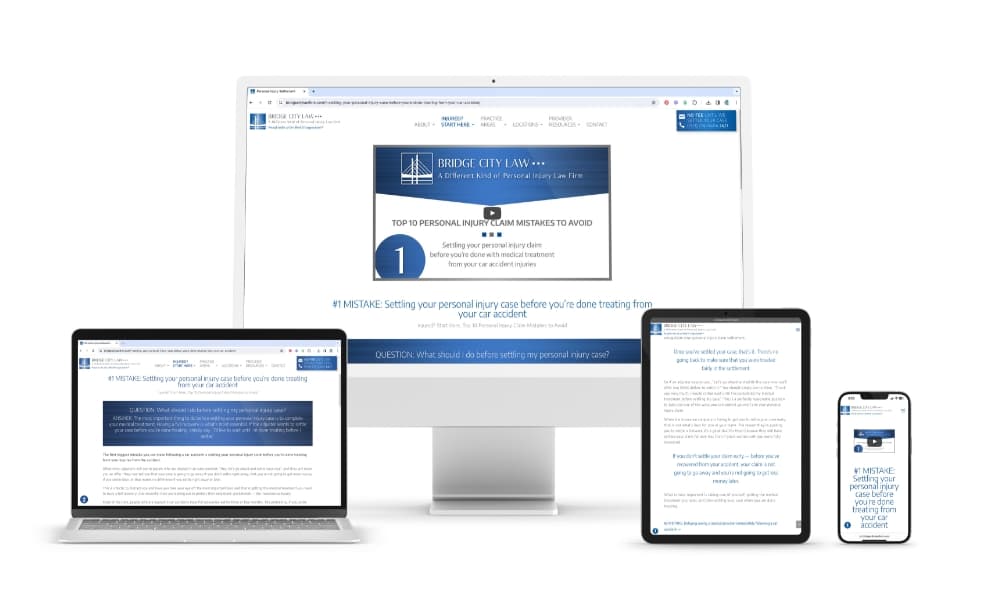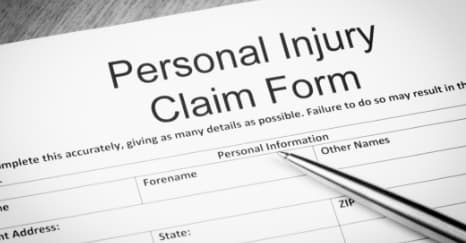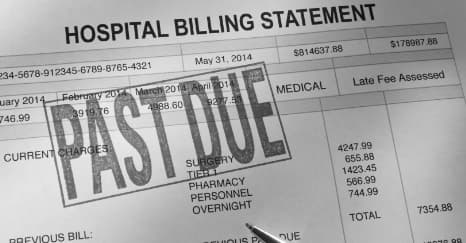INDEPENDENT MEDICAL
EXAMINATION (IME)
HOW TO PREPARE FOR YOUR INDEPENDENT
MEDICAL EXAM
After a Car Accident
The better the communication with your providers, the better your recovery and claim will go.
VIDEOS
ARTICLES
1. What is an Independent Medical Exam (IME)?
An IME is an Independent Medical Exam. It is an exam set up by the insurance company.
The insurance company will refer to the exam as an “independent” medical exam, but there is nothing independent about it. The exam is requested by insurance companies to look for reasons to deny your claim. The IME doctor is chosen by the insurance company. The exam is not part of your medical treatment. 90% of all the reports prepared by the IME doctor result in the medical treatment for the injured person paid by their PIP coverage being stopped.
If you receive a notice that the PIP carrier wants to send you to an IME and threatening not to pay your medical bills, consult with an experienced personal injury attorney. They provide a no-fee, no-obligation initial consultation where they will ask a variety of questions to help determine if they can enforce your rights, and have your PIP benefits restored so that your medical bills are paid for.
2. Why am I being sent for an Independent Medical Exam (IME)?
Requiring that you attend an Independent Medical Exam is a strategy used by the insurance company to justify stopping paying your medical bills and wage loss. The IME doctor is not examining you to help you get better or to treat your injuries. The IME doctor will likely report that you do not need any additional treatment, or that the treatment is not related to your collision.
Possible reasons why the insurance company is sending you to an IME:
- There was not much visible damage done to the car you were in.
Insurance perspective: If the cars involved in the accident don’t appear to be badly damaged, any injuries you have must be minimal.
Reality: People can be severely injured in traffic accidents even if there is little or no damage to the vehicles. For example, if your head or body is turned at the time of impact, you’re in a more vulnerable position. Also, some people are more fragile than others. Some people walk away from a violent crash in which the cars are destroyed, while other people can be injured when there is no car damage at all.
- You have prior similar injuries or treatment.
Insurance perspective: If you had a similar problem in the past, your current injury must be caused by that.
Reality: Just because you may have had an injury before the collision does not mean you can’t be injured again. Oftentimes people injure certain body parts more than once over the course of a lifetime. A sprained neck in the past doesn’t mean it’s impossible to have another sprained neck later.
- There was a gap in your treatment.
Insurance perspective: If you were truly injured, you would be treated for it regularly. If there are any gaps in your treatment it means that you stopped because your injury resolved and the need for more treatment later must be the result of something else.
Reality: A doctor’s availability, transportation, work obligations, or the lack of insurance can result in a gap in treatment. Sometimes injuries seem to have healed, but the symptoms return after the patients start to resume their normal lifestyles.
- There was a delay in treatment.
Insurance perspective: If you experience a delay in symptoms or treatment, those injuries must have been caused by something other than the car accident.
Reality: After an accident, there is typically shock and adrenaline that can overshadow injuries. It can take time for some injuries to be felt. More severe injuries can mask less severe injuries. Some injuries progress over an extended period of time. Just because an injury isn’t instantly reported doesn’t mean the later symptoms are unrelated.
- There was a subsequent injury.
Insurance perspective: If you need more treatment, it is because something new happened.
Reality: Your injury can be made worse by something that happens later. A past injury can also make you vulnerable to a future injury. If your motor vehicle injury has contributed to a later injury, the PIP insurer may still be responsible for the additional care you need.
- You should have already recovered.
Insurance perspective: Injuries heal within defined periods of time. There is no need for prolonged treatment.
Reality: There is no way to determine when an injury will fully heal. All people are different and injuries range in severity and recovery time. Some people may fully recover from their injuries while other people may never fully recover.
3. Do I have to attend the Independent Medical Exam (IME)?
Insurance companies cannot force you to go to the IME. However, if you refuse to go, they will stop paying for your medical treatment. If you decide to attend the IME, they will still probably end your PIP benefits and stop covering your medical treatment and wage loss benefits. However, by going to the IME you will be in a better position to enforce your rights, so that they have to pay for your accident-related medical treatment and wage loss.
That said, the decision to attend the IME is best made with the advice of an attorney. Experienced personal injury lawyers are usually able to help most people get the medical treatment they need. You can also bring someone with you to the IME, but only as an observer. This person may take notes, but should not say anything during the exam.
If your PIP benefits are cut off by the insurance company, having them restored will require an experienced personal injury attorney representing you and to advocate for you and to enforce your rights. They provide no-fee, no-obligation initial consultations, where they will ask you a variety of questions. They will help determine if they will be able to get the insurance company to resume paying for your medical treatment and wage loss.
4. What is the impact of an Independent Medical Exam (IME) on my treatment from a car accident?
The primary impact of the IME is that the insurance company will more than likely stop paying for any additional medical treatment.
What’s important is your health and having a full recovery from the injuries from your car accident. Don’t let the insurance company threatening to end your PIP benefits stop you from getting the medical treatment you need.
Let the medical providers you’re treating with know right away that you’ve received communication from the insurance company stating that they’re going to end your PIP coverage AND continue seeing your healthcare providers for treatment.
Next, talk with an experienced personal injury attorney. They will provide a no-fee, no-obligation initial consultation. During your meeting with the lawyer, they will ask you a variety of questions to help determine if they’ll be able to have your PIP benefits restored, and what best course of action is to protect your rights and your personal injury claim.
5. What do I need to know about the Independent Medical Exam (IME) doctor?
The most important things to know about an IME is that:
- It’s not independent. The doctors are hired by the insurance company and chosen from their network of doctors, who do exams and write reports that benefit the insurance company.
- The IME doctor is not on your side and they are not examining you to help you recover from your injuries.
- An IME is a strategy that insurance companies use to justify stopping paying for your medical treatment for the injuries from your car accident.
- The purpose of the IME is for the insurance company to have a medical report written by an IME doctor — who will dispute your need for future medical care, look for information to discredit your claim, and say that your injuries are unrelated to the accident.
What you need to know about an IME is not to expect neutrality. The insurance company is not hiring a doctor to help you get better. The vast majority of the time, IME reports will state that the patient doesn’t need additional treatment, even if the patient has not yet fully recovered.
6. How do you prepare for the Independent Medical Exam (IME)?
Investing the time to prepare yourself for your Insurance Medical Exam can help you get the medical treatment you need and deserve. Following are some general guidelines to help you arrive at the exam confident and prepared to answer the IME doctor’s questions.
- Don’t say more than you have to.
-
- Listen carefully to the question the doctor is asking you. If the doctor’s question is not clear, let the doctor know that you don’t understand what they’re asking and request that they restate the question. Once you understand the question, keep your answer short and to the point. It’s important to answer the questions the doctor asks fully, but with as few words as possible.
- Don’t say anything you don’t know to be true.
- Of course, you’re going to answer the questions honestly, but guessing at an answer can be just as bad as being dishonest. It’s okay to tell the doctor that you don’t know or aren’t sure of the answer to the question they’ve asked. If you can provide an approximate answer, that’s fine. But don’t guess or make something up. If you guess wrong, the insurance company will treat it as a lie.
- Keep your answers short.
- We cannot stress this enough. It’s important to give accurate and complete answers but keep them as brief as possible. If you are required to describe a situation, a sentence or two response is enough. We are taught to be thorough when communicating with our medical providers so that they will be better able to provide medical care. However, IMEs are different. The more information you give the IME doctor, the better opportunity the insurance company will have to use something you say against you.
- If the doctor doesn’t ask you a question that you think is important, don’t offer it. Remember the IME rule: don’t volunteer information.
- 4. If they don’t ask, don’t tell.
-
- You may feel the urge to tell the doctor why you need more treatment or how your injury is directly related to the car accident. However, this is not the time or the place to advocate for yourself. You have three jobs to do at the IME:
- Let the doctor examine you.
- Answer the doctor’s questions.
- Be consistent and confident in your responses.
- Maintaining your credibility is important. If you answer a question that is not consistent with your medical records, the doctor will highlight that in the report. The insurance company will say that you were not being truthful and you should not be believed. So, what’s the rule here? Don’t guess!
- You may feel the urge to tell the doctor why you need more treatment or how your injury is directly related to the car accident. However, this is not the time or the place to advocate for yourself. You have three jobs to do at the IME:
- 5. Provided you’re asked, tell the doctor about similar injuries or health conditions you have had in the past — even if you made a full recovery. It’s important to remember that if you tell the doctor something that doesn’t match your current or past medical records, the insurance company will accuse you of being dishonest.
Navigating the personal injury claims process is complex. There are a lot of dos and don’ts to know about how to protect yourself. Being prepared for an IME is critically important to maintaining your PIP benefits and to protect your personal injury claim. Talking with an experienced personal injury attorney prior to your exam will be very beneficial. They will provide a no-fee, no-obligation initial consultation. During your meeting with the lawyer, will ask you a variety of questions about your car accident and your injuries, so they can help you prepare for the exam and advise you on how to respond to the IME doctor’s questions based on your specific injuries and circumstances.
7. What do I tell the IME doctor if I have had similar problems in the past?
Most people have had some injury or issues with the neck or back at some point in their life. To prepare for your Independent Medical Exam, what’s most important is that you spend time thinking about previous injuries or similar treatment that you’ve received — that way when you’re answering a question about the past, you are not guessing. The closer in time to the accident you had previous neck or back issues or similar injuries as to the injuries from your auto accident, the more important it is that you are accurate with providing that information to the IME doctor.
Do not be afraid of giving the IME doctor information about past similar issues. It’s critical to your personal injury claim that you’re honest. Protecting your credibility is what’s most important. Just remember to keep your answers short and to the point.
The PIP carrier will make sure the IME doctor has all of your medical records prior to the exam, so they will already know about your past injuries and medical treatment.
8. What is the biggest mistake I can make if I’m going to an IME?
The biggest mistake you can make is to stop getting the medical treatment you need if you have not fully recovered from your injuries from your car accident.
Medical care is expensive. If you don’t have health insurance it makes a lot of sense why you may feel like you have to stop getting treatment. No one wants to have unpaid medical bills.
Even if the insurance company requires you to attend an Independent Medical Exam, the most important thing you can do for your health and recovery from your injuries — and to protect your personal injury claim is to let your medical providers know about the IME and continue with your medical treatment.
Talking with an experienced personal injury attorney will also help you understand how to prepare for an IME. They offer no-fee, no-obligation initial consultations. The lawyer will ask you several questions about your auto accident and your injuries so that they understand your unique situation. They will then advise you on what steps you need to take to be prepared for the IME and how to respond to the IME doctor’s questions.
9. What’s most important when I’ve been injured through the fault of another?
The most important thing if you’ve been injured in a car accident is getting the medical treatment you need so that you have a speedy and full recovery.
The personal injury claims process is complex and there’s a lot of dos and don’ts to know about to protect yourself and to ensure that your medical treatment is paid for. People will give you advice about what to do if you’ve been injured in an accident. They mean well, but there to take the best possible care of yourself and your claim, it’s valuable to talk with an experienced personal injury attorney. This type of lawyer offers no-fee, no-obligation initial consultations. They will ask you a number of questions to get an understanding of your car accident and your injuries. They will explain the personal injury claims process to you and help you determine if having an attorney would be beneficial for you or if it makes sense for you to manage your claim on your own.
If it does not make economic sense to hire an attorney, the lawyer will share information with you about how to navigate the claims process and how to protect yourself.
10. What will it cost me to talk to an attorney about the Independent Medical Exam (IME)?
We talk to hundreds of people a year about their car accidents. About 60% of the folks we talk to do not need to hire a personal injury attorney to represent them, however everyone we talk with benefits from the information we provide during an initial consultation.
Most personal injury lawyers offer a no-fee, no-obligation initial consultation. During your meeting with the attorney, they will ask you a series of questions about your accident, your injuries, and the notification you received about attending the Independent Medical Exam. This will help them understand your unique situation and advise you about how to navigate what’s involved with an IME.
Whether we represent you or not, we’re happy to talk with you so that you get the information you need to help you make the best possible decision about whether to attend the IME — or not, and if so, how to prepare for it and respond to the IME doctor’s questions during the exam.
We are passionate about providing personal injury claim information to people who have been injured in a car accident so that they are not taken advantage of by the insurance company.
MORE PERSONAL INJURY CLAIMS RESOURCES
If You’ve Been Injured in a Car Accident
We are here to be a bridge of support. If you have questions about how to navigate the personal injury claim process, we're happy to talk with you. Whether you're our client or not, we want for you to get the information you need to protect your rights and your claim.
Unsure if You Have a Case?
Contact us for a NO FEE Case Evaluation
"*" indicates required fields











